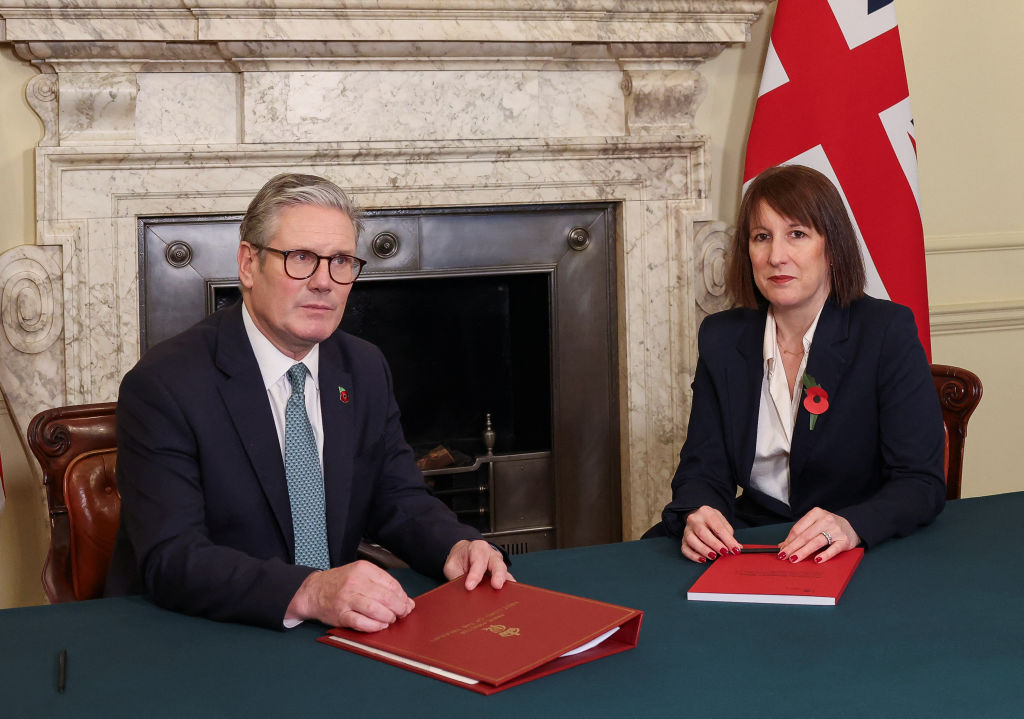New figures published by the Office for National Statistics (ONS) this week, which show that more than half of Britons — and almost half of working-age Britons — receive more from the state than they pay in taxes, ought to be a nasty wake-up call for the Government. Not only is this fact at the heart of the impossible position Rachel Reeves finds herself in over the public finances, but it is only set to get worse.
As Karl Williams of the Centre for Policy Studies set out last year in “Justice for the Young”, the forward projections for the most expensive budgets, such as pensions and social care, are currently only going up. Servicing our current, ramshackle state has taken tax to 36% of GDP; in 50 years’ time, just serving the cost of an ageing population would take it to 46%.
Labour would be very wise to get a grip on this — and might, in a Nixon-goes-to-China fashion, have an easier time doing so than the Conservatives. But that process must start by being honest about what the problem is: that many people are currently receiving money they should not, not necessarily because they don’t “deserve” it but simply because the UK is living wildly beyond its means.
This is baked into the fundamental structure of what is called “entitlement spending”. The clue is in the name: if you meet a certain set of criteria, you are entitled to a certain payment. Yet two problems arise from this. First, there is no top-level control of the growth of these budgets; the Government discovers how expensive they’re getting as the bureaucracies overseeing them sign more people on. At the same time, it creates no disincentives or barriers to administrators signing people up, and creates huge incentives for people to claim they qualify for the benefit in question.
The result is a ballooning bill — or rather, because a lot of Government spending goes to programmes run on this basis, a lot of ballooning bills. Servicing this “Annually Managed Expenditure” now takes up almost 57% of all Government spending, over 25% of GDP.
Consider one example: spending on Special Educational Needs and Development (SEND) in education. There is no fixed pot for this and schools are mandated to pay the first £6,000 in additional costs for any qualifying child, after which the local authority has to pay the rest.
The result? A perfectly predictable explosion in claims, from 240,185 in 2014-15 when the system was introduced to a whopping 1,673,205 in 2023/4. In Wales, it emerged this summer that almost half of all children born in 2002-3 were assessed as having special needs — a figure only plausible if the Welsh Government quietly put lead back in the petrol.
Labour’s instinct will be to believe that all of this is valid spending claimed in good faith, and focus its efforts on trying to reduce the number of people who qualify for various welfare payments via even more spending, such as programmes to get people back into work.
While well-meaning, this approach is not fit to either the scale or character of the problem. What is required is a fundamental shift from a “needs-first” model of welfare spending to a “means-first” one — not in terms of means-testing, but simply the state’s actual ability to pay. Creating fixed pots for as many welfare budgets as practical would change everything, capping runaway growth in spending and shifting the incentives of administrators to concentrate resources on the most deserving cases.
It could also tie into the devolution agenda: if councils are responsible for a budget (as with SEND), let them decide the qualifying criteria. Without this fundamental rethink, the share of Britons who are net contributors to the Treasury will only continue to shrink — and any push for sustainable growth is doomed.











Join the discussion
Join like minded readers that support our journalism by becoming a paid subscriber
To join the discussion in the comments, become a paid subscriber.
Join like minded readers that support our journalism, read unlimited articles and enjoy other subscriber-only benefits.
Subscribe